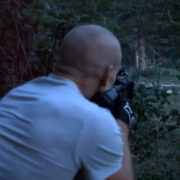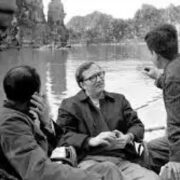IL DONO: Michelangelo Frammartino’s Memento Mori
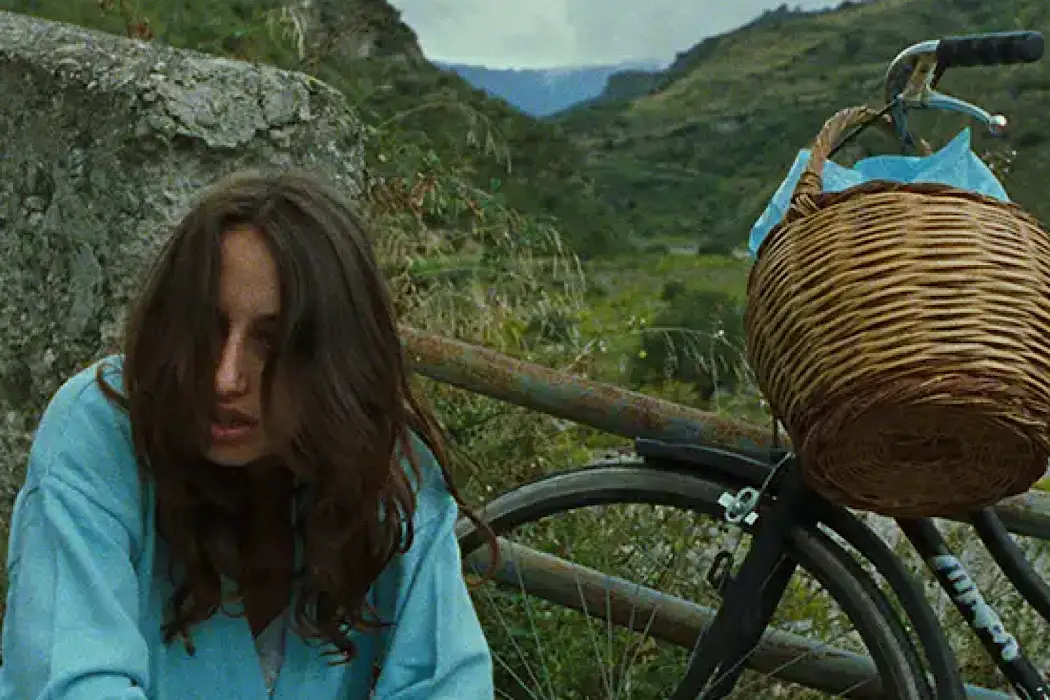
Lee Jutton has directed short films starring a killer toaster,…
Michelangelo Frammartino’s 2003 debut feature, Il Dono (The Gift), is a film about a dying place—specifically the tiny Calabrian village of Caulonia, the filmmaker’s ancestral home—so it’s only fitting that it is bookended by scenes of loss. The film opens with an elderly man (Angelo Frammartino) summoning local boys to help him bury his recently deceased dog, and it ends with him doing the same for some dead chickens; like Caulonia itself, which has experienced drastic depopulation in recent decades, the man’s world is gradually emptying of anything alive, and he knows that soon it will be his turn to depart. Newly restored in 4K by Coproduction Office and Cineteca di Bologna at L’Immagine Ritrovata and Augustus Color laboratories from the original camera and sound negatives, Il Dono is a bleak yet beautiful portrait of a place and a way of life soon to be lost in the never-ceasing stream of time.
Ashes, Ashes…
After the local boys finish burying the dog and leave the old man alone again, he realizes that they’ve left a couple of things behind: a cell phone and a wrinkled print-out of a pornographic image. The cell phone rings, the sound a startling, grating invasion of modernity in a place that otherwise seems to be straight out of the past, but the man has no interest in answering. Instead, he stares at the photo as though trying to dredge up memories from long ago that might help explain what is happening in it; the human intimacy displayed in the image is so far removed from the loneliness that defines his current state of being that it may as well be alien.
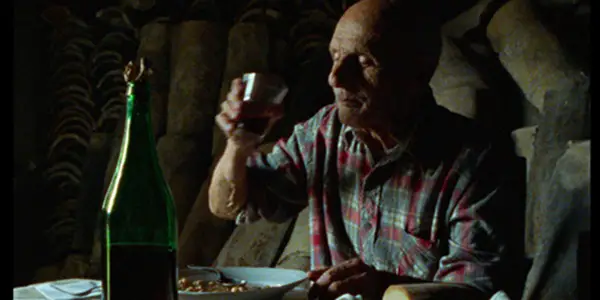
Elsewhere in the village, the strange behavior of a young woman (Gabriella Maiolo) leads her family to suspect she is possessed and subject her to the kinds of ancient rituals that have died out almost everywhere else in the world except here. Dangerously close to becoming one of the walking dead, she finds solace in a new friendship with the old man, who sympathizes with her desire for something more in life. It might be too late for him, but if he can help this young woman find the freedom she craves, then he will be able to leave this world in peace.
…We All Fall Down
There is almost no dialogue in Il Dono; it is a largely silent and observant film that unfolds at a pace so slow that it sometimes feels more like a slideshow of still images, each one beautiful enough to be displayed on its own as a work of art. The steep, mountainous terrain of the village means that anything resembling action is instigated less by the initiative of humans and more by the inevitability of gravity, slowly but surely dragging people, animals, and objects downhill until they eventually end up in the grave. Despite how that may sound, Il Dono is less depressing than it is deeply contemplative; it lingers on the moments of lyrical loveliness that can be found in daily life even amid death and decline.
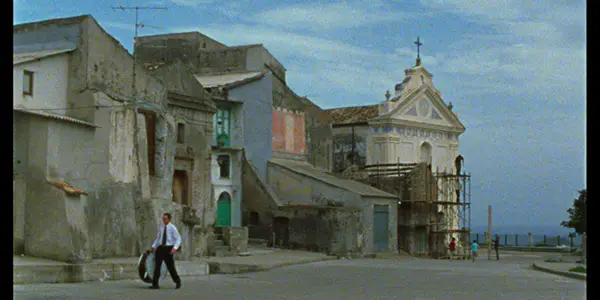
The film was originally shot on 16mm film stock, which perfectly captures the eerie timelessness of the rural Calabrian landscape, dotted with crumbling buildings and half-sunken ships; if it weren’t for the presence of cars and cell phones, it would be easy to believe Il Dono was shot more than 100 years ago instead of 20. The new restoration preserves the texture inherent in the film stock while also reviving the vibrancy of the colors: the deep blue of the sky, the rich green of the grass, the bright white of the buildings, parched by the Southern Italian sun. You can understand why people would be reluctant to leave such a place even as everything around them appears to be dwindling away.
Conclusion
A poetic depiction of how the passage of time has affected a place so close to Frammartino’s heart, Il Dono is a film to lose yourself in.
The 4K restoration of Il Dono opens at Metrograph in New York on July 25, 2025 before expanding to additional markets nationwide.
Does content like this matter to you?
Become a Member and support film journalism. Unlock access to all of Film Inquiry`s great articles. Join a community of like-minded readers who are passionate about cinema - get access to our private members Network, give back to independent filmmakers, and more.
Lee Jutton has directed short films starring a killer toaster, a killer Christmas tree, and a not-killer leopard. Her writing has appeared in publications such as Film School Rejects, Bitch: A Feminist Response to Pop Culture, Bitch Flicks, TV Fanatic, and Just Press Play. In addition to movies, she's also a big fan of soccer, BTS, and her two cats.


